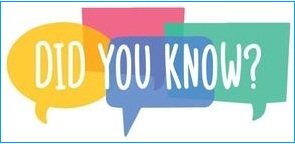Being At Cause Vs Being At Effect:
Why Should I Change?
As we saw on Page 1 of our Cause vs Effect series, being at effect is a losing proposition. How do we know we're at effect? We feel like we're at everyone else's mercy. We have no personal power or authority. We are not in control of exterior events, and other people have power over us. It's always been that way, and it probably will always be that way. Does that sound familiar? These are the statements of people living "at effect". In more familiar language, this is the philosophy of a person who is disempowered and/or a chronic victim. To that person, it feels like the whole world is against him or her. It can be a crushing, overwhelming burden to bear. We even have a phrase for this, calling it a "chip on someone's shoulder". It shapes every aspect of a person's life.
Given the above discouraging statements, you'd think that people would be eager to change that personal philosophy. And looking in from the outside, it can be easy to see how a small shift in attitude could yield amazing personal or professional gains. Yet when considering our own issues, that move can seem insurmountable. How can we shift to something we've never personally experienced?
Worse, may of us are very protective of our personality traits, even when we know that those traits are causing us problems. We are who we are, the saying goes, and we want people to accept us as we are. The shift from being at effect to being at cause first requires us to acknowledge that something within us needs to change. That by itself can seem insurmountable. Some of us have reinvented ourselves after loss, after trauma, or after some other large-scale life change, which was usually imposed by some outside event. That was hard enough. How do we summon the courage and the willpower to change proactively? We are who we are; how do we change that?
Third, many of us figure that we've done as much as we can in any given circumstances, and our coping mechanisms got us this far. Why break something that is working decently enough? The best answer to this is that many of us also feel like we haven't hit our highest possible potential. Or we haven't even been able to reach that next goal. When that happens often enough, we start to realize that something is getting in our way. At first, it's easy enough to blame external factors - the people, activities, events or circumstances outside ourselves. Do that once or twice, and gosh it's not our fault that we didn't reach our goal. But when that goal is really important to us, those reasons start to look like excuses. We start to look past those reasons towards finding another way to accomplish our goals. Alternately, we start having enough problems that all start to seem related - something keeps getting in our way for making any further progress. What's the solution? We stop looking for outside excuses, and start looking within.
Making Changes For Ourselves
Thankfully, our obstacles and problems usually have a source, and that source is ultimately within each of us. That may sound horrible, and fatal to our goals. Ironically, that's actually the way we start succeeding. When we stop looking for external "reasons" for our failures, and start looking within, that's when we start clearing the way for our own success.
The first of those steps is to move away from being at effect, and learn how to be at cause. So, how do we do that?
If our problems and obstacles actually start within ourselves, they must come from somewhere. Specifically, the come from a combination of our assumptions and expectations about how the world works. In turn, those assumptions and expectations don't just pop into our psyches randomly. They are the sum total of our identities, values and beliefs.
Recall from the Mind Layers pages, that the vast majority of our identities, values and beliefs are not actually ours. Instead, we inherited these identities, values and beliefs from what we call our "family of origin". For most people, that would be our mother and/or father, ie, whoever raised us. For others, it might be grandparents, older brothers and sisters, other older family members, or even foster families, step-parents, etc.
This is important because most of our behaviors are therefore based on what we learned from our family of origin, and many times those individuals learned from their own family of origin. In other words, many dysfunctional identities, values and behaviors are actually handed down (unintentionally) through the generations. They served a purpose at some point in the past, maybe hundreds of years in the past, but they are no longer suitable for us.
Do our own experiences create our identities, values and beliefs? Of course they do. Yet here again, it's not just a matter of laying down new elements of our personality. Our brains are wired in such a way that our subconscious will "favor" certain experiences over others. In this context, that "favoring" is not a good thing. More specifically, if we take two different experiences, one pleasant and one unpleasant, and compare them side by side while measuring certain physical and brain reactions, we'll see that the unpleasant experience has a much bigger "footprint" in our mind's perception than the pleasant experience does. In other words, we might gain a brief moment of enjoyment from remembering a pleasant activity or association. Yet we are often "haunted" by past unpleasant experiences, particularly those involving fear of some kind.
When we recall those two experiences side by side, the pleasant experience will give us a moment of fond memory, and we'll smile to ourselves, maybe speak a little about why that experience was so pleasant Yet if we are asked to recall the fearful or unpleasant experience, it comes back to us much more forcefully. Our heart rate and respiratoin both go way up, and we might break out in a sweat. Our muscles may tense up in preparation for fight or flight, our stomach may churn and we often speak about how bad it was. In fact we'll usually go on to talk about how bad it might have become, and how it would be terrible to be in that position again. That's a huge difference from our fleeting moment of pleasant memories! But what does that really mean? It means that our fears are never far away, and they can result in a nearly instantaneous negative reaction, even if the original threat is long gone. It's as if the dragon was still at the door pounding to get in, 50 years later (or 100 years, or 500 years, etc).
So let's stand back and think about how we can use this to our advantage. When we realize that much of who we are started off as coping mechanisms for past generations, and/or traces back to an overactive survival response that favors fear and avoidance, we start to see that maybe we don't need to hang onto them quite so tightly. Maybe we can do better than to rely on knee-jerk reactions and coping mechanisms that we inherited from others. We can decide that we're capable of more, of better, of healthier identities, values and behaviors. We can choose something better. And the best part is that we can choose what we want to replace, and what we're going to replace it with. That is one of the ultimate expressions of empowerment that anyone can experience.
|
Shopping Cart |
|
Contact Me For Help Reaching Your Goals

When you're ready to move forward, push through obstacles and make real progress towards your goals, Contact Me today.
New Products and Services Request Form
Do you have a product or service request that you don't already see listed here? I'd love to hear your ideas! Please feel free to either Contact Me or fill out my new Product and Service Request Form.
Thanks for your suggestions!
